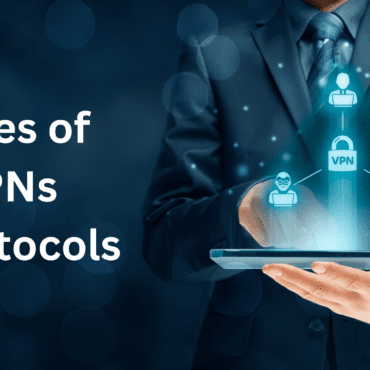These certifications can assist you in gaining the skills and knowledge required to launch an exciting career in digital forensics.
The area of digital forensics is expanding and in great demand. Experts that are able to look into and evaluate digital evidence are in high demand as more and more companies and people rely on technology.
If you are interested in a career in digital forensics, there are a number of certifications that can help you get started.
The top ten digital forensics qualifications are as follows:
1. Computer Hacking Forensic Investigator (CHFI)
The CHFI certification is a certification that is offered by the EC-Council.
The CHFI certification is designed for individuals who want to learn about computer hacking and how to investigate cybercrimes.
Network security, penetration testing, and malware analysis are just a few of the many topics covered in the comprehensive exam needed to get the CHFI certification.
2. Certified Ethical Hacker (CEH)
The CEH certification is a certification that covers ethical hacking and penetration testing.
Penetration testing and ethical hacking are covered by the CEH certification.
For those interested in learning more about digital forensics and pursuing a career in information security, the CEH certification is an appropriate option.
3. Certified Computer Examiner (CCE)
The International Organization of Computer Evidence (IOCE) provides a certification called the CCE.
For those with prior computer forensics knowledge who wish to prove their expertise, there is the CCE certification.
To obtain the CCE certification, candidates must pass a comprehensive test covering a variety of subjects, such as malware analysis, file carving, and data recovery.
4. Digital Forensics Investigator (DFI)
The DFI certification is a certification that is offered by the National Institute of Justice (NIJ).
The DFI certification is designed for law enforcement professionals who want to learn about digital forensics.
The DFI certification requires completing a training course and passing a comprehensive exam.
5. Certified Forensic Computer Examiner (CFCE)
The International Association of Computer Investigative Specialists (IACIS) offers a certification called the CFCE.
For those with prior computer forensics knowledge who wish to prove their expertise, here is the CFCE certification.
To obtain the CFCE certification, one must pass a comprehensive exam covering a variety of subjects, such as malware analysis, file carving, and data recovery.
6. GIAC Certified Forensic Analyst (GCFA)
In the field of digital forensics, one of the most respected certificates is the GCFA.
It is awarded by the SANS Institute, a leading provider of information security training and certification.
To obtain the GCFA certification, candidates must pass an extensive test covering a variety of subjects, such as malware analysis, network forensics, file carving, and data recovery.
7. GIAC Certified Forensic Examiner (GCFE)
Other highly esteemed certifications in digital forensics is the GCFE.
It is also awarded by the SANS Institute. For those with prior experience in digital forensics who wish to validate their knowledge, there is a certification called GCFE.
To obtain the GCFE certification, candidates must pass an extensive exam covering a variety of subjects, such as incident response, legal concerns, and investigation methods.
8. AccessData Certified Examiner (ACE)
The ACE certification is a certification that is offered by AccessData, a leading provider of digital forensic tools.
The ACE certification is designed for individuals who want to learn how to use AccessData’s forensic tools.
To obtain the ACE certification, one must pass a comprehensive exam covering a variety of subjects, such as malware analysis, file carving, and data recovery.
9. EnCase Certified Examiner (EnCE)
One of the top providers of digital forensic tools, Guidance Software, offers the EnCE accreditation.
The EnCE certification is designed for all those who wish to become expert with the forensic tools offered by Guidance Software.
To obtain the EnCE certification, one must pass a comprehensive test covering a variety of subjects, such as malware analysis, file carving, and data recovery.
10. Certified Information Systems Security Professional (CISSP)
Digital forensics is one of the many information security-related subjects covered by the comprehensive CISSP certification.
For those interested in learning more about digital forensics and pursuing a career in information security, the CISSP certification is a suitable choice.
At Hawk Eye Forensic, we understand that certifications are essential for career development in the field of digital forensics. With an emphasis on certifications such as CHFI and CEH, our comprehensive training courses are created to provide aspiring professionals the information, abilities, and practical experience they need to succeed in this fast-paced industry.
Whether you’re seeking to kickstart your career, enhance your skill set, or pivot within the digital forensics domain, Hawk Eye Forensic stands ready to guide you on your journey towards achieving these esteemed certifications. Our industry-experienced instructors, cutting-edge resources, and hands-on training ensure that you are well-prepared to tackle the challenges of this rapidly evolving field.
Join us at Hawk Eye Forensic, and let us help you unlock your potential in the world of digital forensics.




Post comments (0)